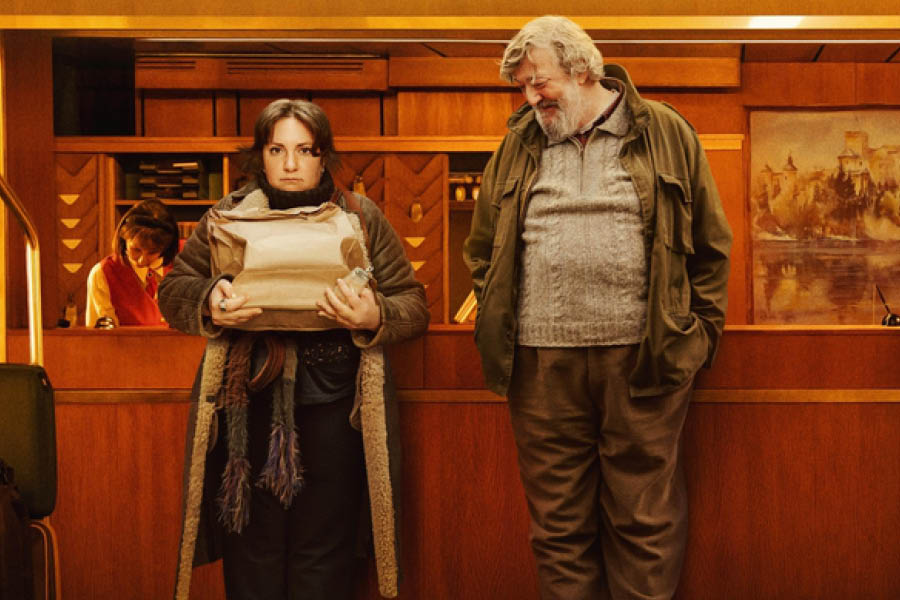Julia von Heinz’s Treasure is a tender tale of a father and daughter — played by Stephen Fry and Lena Dunham — that unfolds against the backdrop of the remains of Holocaust and unravels the fissures in their relationship.
Based on Lily Brett’s 1999 novel Too Many Men, Treasure follows struggling journalist Ruth (Lena Dunham) as she and her ageing father, Edek (Stephen Fry), make a trip to his native country, Poland. Edek, a Holocaust survivor, is going against his wishes as he is still not ready to face his traumatic past, but Ruth wants to connect with her parents’ birthplace. Right from setting foot in Warsaw, Edek tries to derail Ruth’s itinerary by making up excuses and landing up in comical situations, which tests their already dysfunctional relationship.
The contrasting personalities of the father and the daughter becomes the main driver of the story, with Dunham’s inquisitiveness and urgency balancing Fry’s veiled vulnerability. Edek masks his direct experiences of the Holocaust behind nonchalance and goofiness. Ruth, on the other hand, is struggling with symptoms of depression, possibly an eating disorder, and has difficulty accepting love.
Their journey through post-Cold War Poland offers glimpses into the country’s history and the lingering wounds of war, which act as a backdrop for their personal exploration. Combined with Daniela Knapp's dark cinematography, the place exudes a chilling eeriness.
One of Treasure’s powerful sequences is set in Auschwitz, as father and daughter take a walk and observe the camp. Ruth asks Edek if he’s feeling alright. He replies, ‘There’s nothing they can do to me here now.’ Fry delivers this line with the perfect blend of fear and sadness. In another scene Fry tightly hugs a coat that once belonged to his father. When he finally breaks down and weeps, it feels like a dam has burst.
Yet, Treasure struggles to find a consistent tone, swaying between comedy, drama and historical reflection. While the comedic moments provide light relief, they occasionally clash with the film’s more serious themes. The plot itself is predictable, lacking the surprises that would elevate it from a well-intentioned drama to a memorable film.











